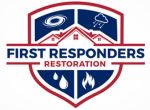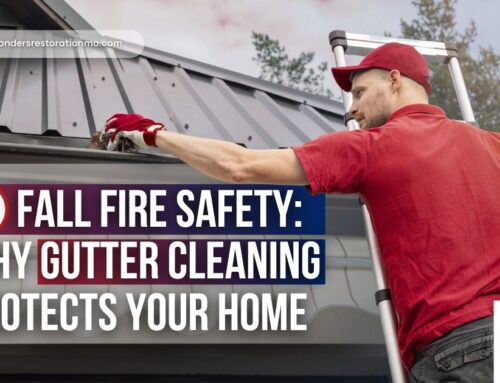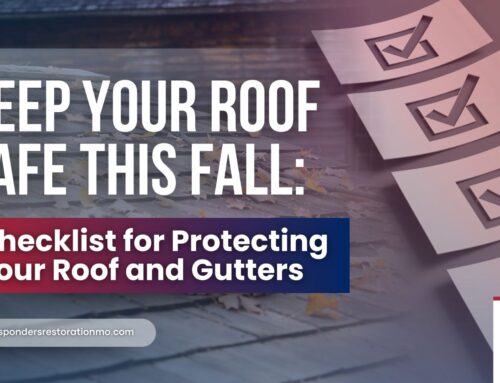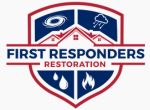Avoid Summer Fire Damage: Essential Barbecue Safety Tips from Restoration Experts
Summer barbecues are a fun and well-loved tradition in Missouri. But if you’re not careful, a simple backyard cookout can quickly become dangerous. At First Responders Restoration (FRR), we’ve seen how fast a small mistake can turn into a big fire emergency.
Whether you’re grilling for a quiet family dinner or hosting a big summer party, fire safety should always come first. That’s why it’s so important to follow a few basic barbecue safety tips.
In this post, we’ll go over some easy steps to help you grill safely. These tips can protect your home and loved ones from fire damage. As experts in Fire and Water Damage Restoration, Storm Damage, and Roofing, FRR is here when you need help after an emergency. But we also want to help you prevent fires before they happen.
Why Backyard BBQs Pose Fire Risks
Grill fires are more common than many people think. According to the National Fire Protection Association (NFPA), gas grills cause over 8,000 home fires each year.
During Missouri summers, the hot and dry weather makes things worse. A quick gust of wind, a flare-up, or even leaving the grill unattended for a minute can be enough to start a fire. Nearby grass, fences, or outdoor furniture can catch fire fast.
That’s why barbecue safety is so important. Taking just a few precautions can keep your cookouts fun and safe. It also helps avoid the stress and damage of a summer fire.
Common Fire Hazards During BBQs
Barbecues are fun, but they come with real fire risks if safety is not a priority. Here are some common hazards to watch out for when grilling:
- Flammable Surroundings
Grills are often used on patios, decks, or near the house. These areas may have things like vinyl siding, dry grass, wooden furniture, or decorations that can easily catch fire. Even small items like fabric tablecloths or hanging plants can burn fast if they’re too close to the flame.
To stay safe, always place your grill away from anything that could catch fire. Keeping enough space around the grill is a simple but powerful barbecue safety tip.
- Poor Maintenance
If your grill is dirty or in bad shape, it can be dangerous. Built-up grease and leftover food can act like fuel, making flare-ups more likely. Damaged gas hoses or loose connections can let gas leak out, which could lead to a fire or even an explosion when you light the grill.
Check your grill often to make sure it’s clean and working properly. For more on how we help after outdoor fire damage, see our Fire Damage Repair & Odor Elimination process.
Also, make sure to follow your propane BBQ safety tips and use your fire extinguisher inspection form to stay prepared.
- Unattended Cooking
Many grill fires happen simply because no one is watching. It only takes a few seconds for a flare-up to grow or for kids and pets to get too close. Wind can also blow things into the flames or even knock the grill over.
Never leave your grill alone while it’s hot. Staying nearby helps you catch small issues before they turn into bigger problems.
- Lack of Fire Safety Tools
Not having a way to put out a fire can turn a small issue into a big emergency. Many people think they won’t need an extinguisher for a casual BBQ. But if a grease fire happens, acting fast is key.
Always have something nearby to stop a fire. That includes a hose, a fire blanket, or a proper extinguisher. You should always keep a bbq fire extinguisher or a fire extinguisher for propane grill within easy reach when grilling.
Fire Prevention Tips for a Safe BBQ Season
Grill-Specific Safety Tips
Gas Grills
Gas grills are popular for their convenience but require specific precautions:
- Leak Checks: Before every use, inspect the hoses and connections with a soap solution. Bubbles indicate gas leaks, which must be fixed immediately.
- Lid Open Before Igniting: Always open the grill lid before lighting to prevent a buildup of gas inside the chamber. Igniting gas in a closed lid can cause a sudden flare-up or even an explosion. These actions are often highlighted in detailed barbecue safety tips.
Charcoal Grills
Charcoal grilling provides a unique flavor but comes with its own fire risks:
- No Lighter Fluid: Use a chimney starter instead of lighter fluid. Chimney starters heat coals evenly without introducing dangerous accelerants that can flare unpredictably.
- Cool Down Period: After cooking, let the coals burn out completely and sit for at least 48 hours before disposal. Store cooled ashes in a metal container with a lid to prevent reignition. These charcoal grill safety tips are essential to reduce fire risks post-BBQ.
Pellet Grills
Charcoal grilling provides a unique flavor but comes with its own fire risks:
- No Lighter Fluid: Use a chimney starter instead of lighter fluid. Chimney starters heat coals evenly without introducing dangerous accelerants that can flare unpredictably.
- Cool Down Period: After cooking, let the coals burn out completely and sit for at least 48 hours before disposal. Store cooled ashes in a metal container with a lid to prevent reignition. These charcoal grill safety tips are essential to reduce fire risks post-BBQ.
After-Grill Fire Safety
After cooking, it’s just as important to follow fire safety best practices:
- Propane Storage: Always store propane tanks outdoors in an upright position, away from heat sources and direct sunlight. Never store tanks in a garage or enclosed area.
- Confirm Extinguishment: Double-check that all coals are completely burned out and that burners are fully turned off. Look for lingering heat or smoke.
- Gas Valve Shutoff: Turn off the gas at the grill and at the propane tank to prevent leaks or accidental ignition. These propane gas grill safety tips prevent future hazards.
What to Do If a Fire Starts
In the event of a fire:
- Immediate Response: If safe, turn off the burners or close the grill lid to starve the fire of oxygen.
- Use Proper Fire Suppression: For grease fires, use baking soda, a Class B or ABC fire extinguisher, or sand. Never use water on a grease fire, as it can spread the flames explosively.
- Call Emergency Services: If the fire gets out of control or threatens nearby structures, don’t hesitate to call 911. Your safety and that of others is the top priority.
Once safe, contact First Responders Restoration for professional fire damage inspection and restoration. Our certified team uses the latest equipment to address structural damage, smoke residue, and lingering odors. We also specialize in Storm Damage Restoration for more widespread seasonal threats.
FRR’s Fire Damage Services
First Responders Restoration provides:
- 24/7 Emergency Response: Immediate on-site assistance to prevent further damage and begin the cleanup process.
- Smoke & Soot Removal: Our team uses specialized cleaning agents and equipment to remove all traces of smoke and soot from surfaces, furniture, and HVAC systems.
- Fire Damage Repair & Odor Elimination: We restore damaged structural elements and eliminate persistent smoke odors to ensure your home is safe and livable.
- Insurance Claim Assistance: We help document damage, communicate with your insurer, and streamline the claims process to reduce stress.
- Local Coverage: Proudly serving St. Louis, Columbia, Chesterfield, and surrounding areas in Missouri with quick, community-focused care.
Contact Us Today for a Free Damage Assessment or visit our Contact Page to schedule your inspection.
Stay Safe and Enjoy the Season
Summer cookouts should be about fun and food, not fire emergencies. With a little preparation and awareness, you can enjoy safe, memorable BBQs all season long. Trust First Responders Restoration to be your partner in prevention and recovery. Whether you need fire safety advice or emergency restoration, we’re ready to respond and restore.








Leave A Comment